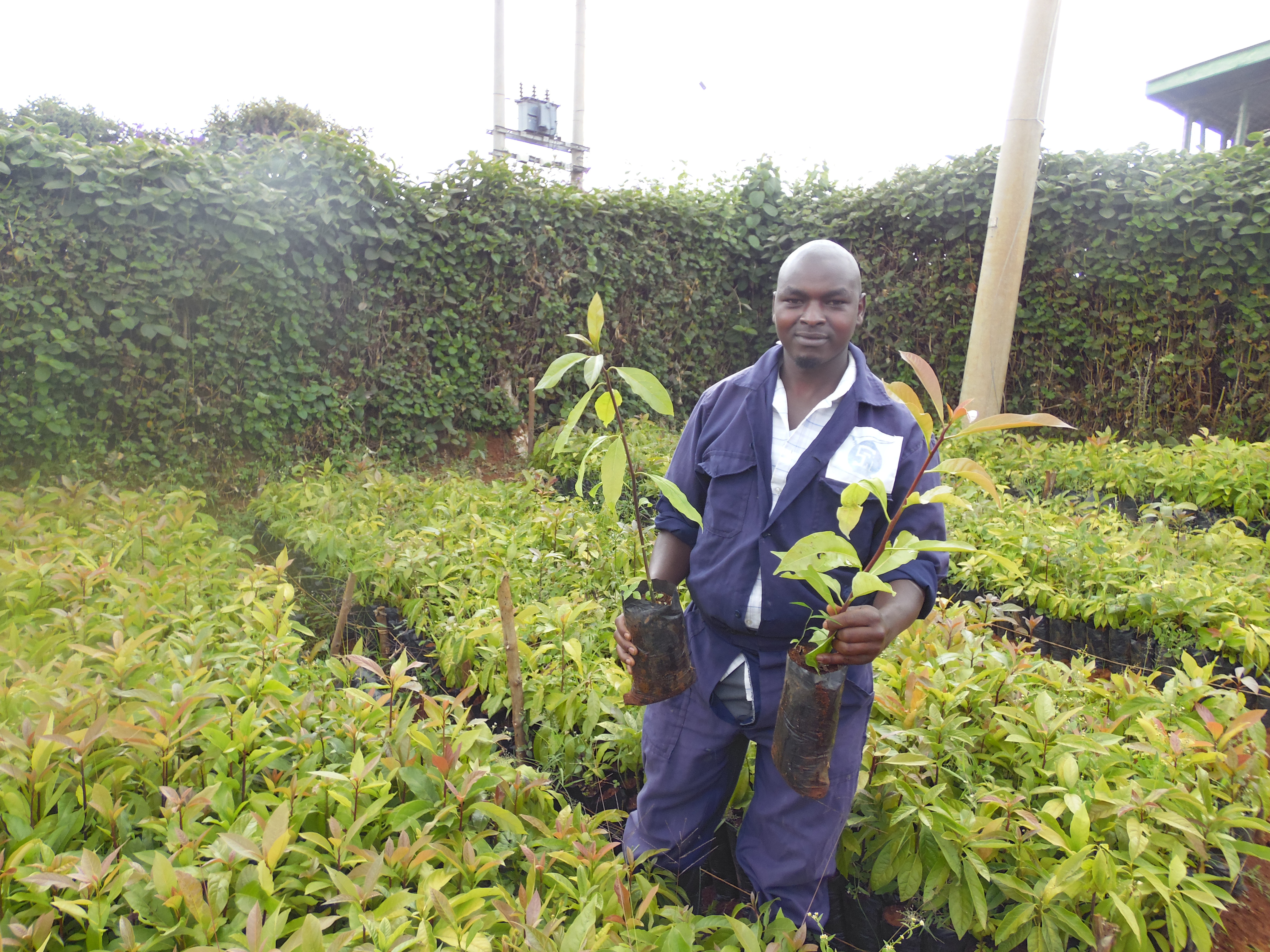By Caroline Wambui
Tucked in Kimandi village in Ndakaini, Murang’a County, Francis Njoroge’s farm hosts over 20,000 certified tree seedlings.
The young farmer supplies the seedlings to different counties and organisations, among them Murang’a and Tharaka Nithi county governments, Kenya Forest Service, The Upper Tana Project and schools in Gatanga sub county.
Meeting Njoroge on his farm, it is easy to pick out his passion in the business.
On this day, Njoroge, who holds a diploma in electrical installation from Technical University of Kenya and graduated in 2013, is busy checking on his tree seedlings as he has an order to meet.
“After graduating, I was looking forward to getting a job but it was not forthcoming. So I decided to farm in the village to keep myself busy, but I don’t regret now,” he offers.
He started with 3,000 seedlings, mainly of Grevelia robusta and eucalyptus varieties, whose seeds he bought from Kenya Forestry Research Institute (KEFRI).
“I grew the seeds, some germinated while others died but after seven months, I managed to sell some 1,000 tree seedlings at Sh7 each to a community organisation named the Ndakaini Environmental Community Association. This encouraged me,” he says.
His three-acre farm has become a model in the village, with Njoroge having sub-divided it to hold various tree species and labelled them for clarity.
“I grow various varieties of tree seedlings ranging from fruit trees to indigenous and exotic species, all which have been approved and certified by Kenya Plant Health Inspectorate Services (Kephis) and Kefri. Selling approved seedlings gives one a niche,” the farmer shares one of his business secrets.
The tree seedlings varieties he grows include Podocarpus, Eucalyptus, Gravelia robusta, Bamboo, Macadamia, Grafted Hass Avocado, Fuerte Avocado, Meru Oak and Albizia.
Jonathan Njuguna, a research officer at Kefri, and an integrated bamboo expert, says certified tree seedlings assure one of germination.
“With tree seedlings, nothing should be left to chance, one should get quality seeds from a reliable source like Kefri. Irrigation water should also be from a reliable source to ensure that no sewage water is used.”
Njoroge uses inorganic fertilisers, which he mixes with soil before putting them in pots to grow the seedlings.
“Once they germinate, seedlings should be well watered and shielded from the very strong sun rays and wind.”
He sells grafted macadamia and bamboo seedlings at Sh500 each, Podocarpus at Sh30, eucalyptus and gravelia at Sh10 each, says Njoroge, who has been trained on the science of grafting under the sponsorship of Kephis and also attended training by USAID at Sagana H.C.D.A.
So what is the secret of his success? Njoroge says growing a variety of seedlings, which broadens his market, targeting organisations for sale, marketing his produce on social media, having training for knowledge in the business and good management of seedlings are key in the business.

